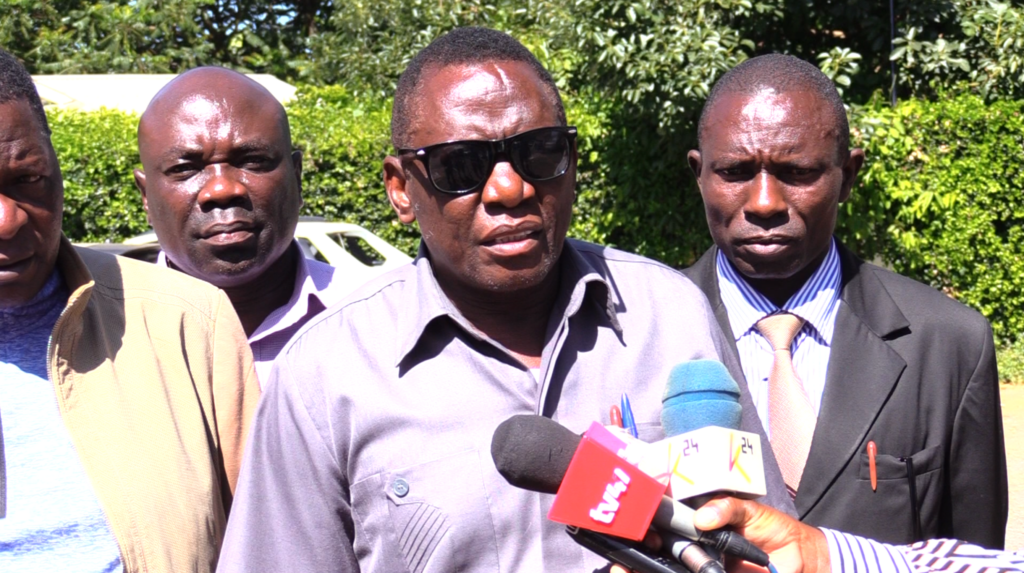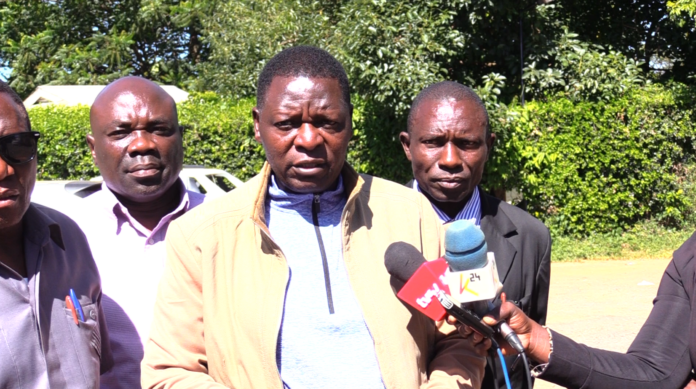By Violet Auma
Parents across Kenya are raising the alarm over the rampant drug and substance abuse in schools, calling for stricter laws to curb the crisis.
The National Parents’ Association is demanding urgent government intervention, particularly in Western Kenya, where cannabis and alcohol use among students is reportedly on the rise.
“We cannot afford to remain silent while our children are being destroyed by drugs. The government must act now,” said Alexander Libuha, Chairman of the Parents’ Association in Vihiga.
The National Authority for the Campaign Against Alcohol and Drug Abuse (NACADA) has released worrying statistics on the extent of drug abuse among school-going children.
Their latest report shows that 16.9% of primary school pupils are using at least one drug or substance of abuse, including tobacco (3.2%), alcohol (2.6%), and miraa/muguka (2.3%).
NACADA also reports that among university and college students, one in every 11 youths (aged 15-24) is using at least one drug.

A staggering 367,608 students in this age group are abusing alcohol, while 193,430 are using cannabis.
“These numbers are shocking. Drug abuse is no longer a secondary issue it is a full-blown crisis in our schools,” said Silas Omuhatsa, National Chairman of the Parents’ Association. “We are seeing students sneaking in drugs through kiosks near schools, while some school workers are facilitating drug distribution.”
Cases of drug-related indiscipline and unrest in schools are increasing. Parents argue that schools are expelling students caught with drugs instead of addressing the root cause—how the drugs enter schools in the first place.
“Why are students being expelled when they entered school clean and later accessed drugs inside?” posed Libuha. “This shows there are loopholes within the system.”
Parents are also concerned about the role of teachers in the crisis, with reports of some failing to report to work due to drug addiction.
“We demand that the Teachers Service Commission (TSC) take action against teachers who are struggling with drug abuse. How can they guide students when they are addicts themselves?” Omuhatsa added.
Shockingly, some schools have been linked to drug farming. “At Nairobi University, reports emerged that marijuana was planted within the school’s flower beds,” Omuhatsa stated.
“We have also heard of students being given drugs disguised as sweets and drinks,” said a concerned parent from Kakamega County. “These drugs are destroying our children, and it is time for serious action.”

Parents are demanding that Parliament fast-track legislation that will impose severe penalties on those found supplying drugs to students. They also want schools to implement strict inspection points to prevent drug entry.
“We urge the government to strengthen school inspections and close down kiosks that sell drug-laced food to students,” said Libuha. “Without firm laws, we are losing a generation.”
The Ministry of Education has acknowledged the crisis and pledged to work closely with NACADA, law enforcement, and school administrators to combat the vice.
Experts warn that if the drug abuse crisis in schools is not addressed, Kenya risks losing its future professionals, leaders, and innovators to addiction.
“We must all act parents, teachers, law enforcement, and the government,” said Omuhatsa. “This is about the future of our children.”



